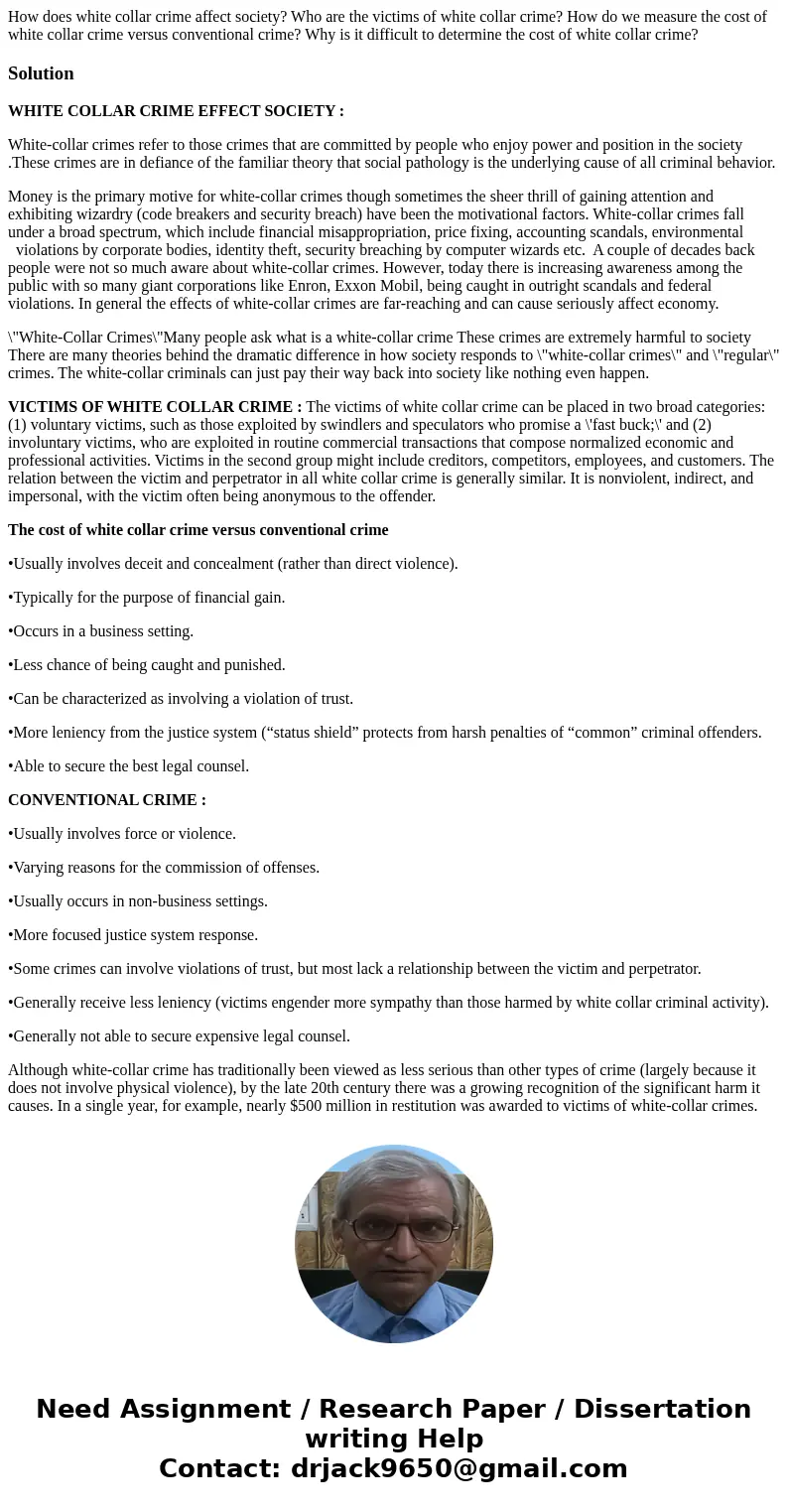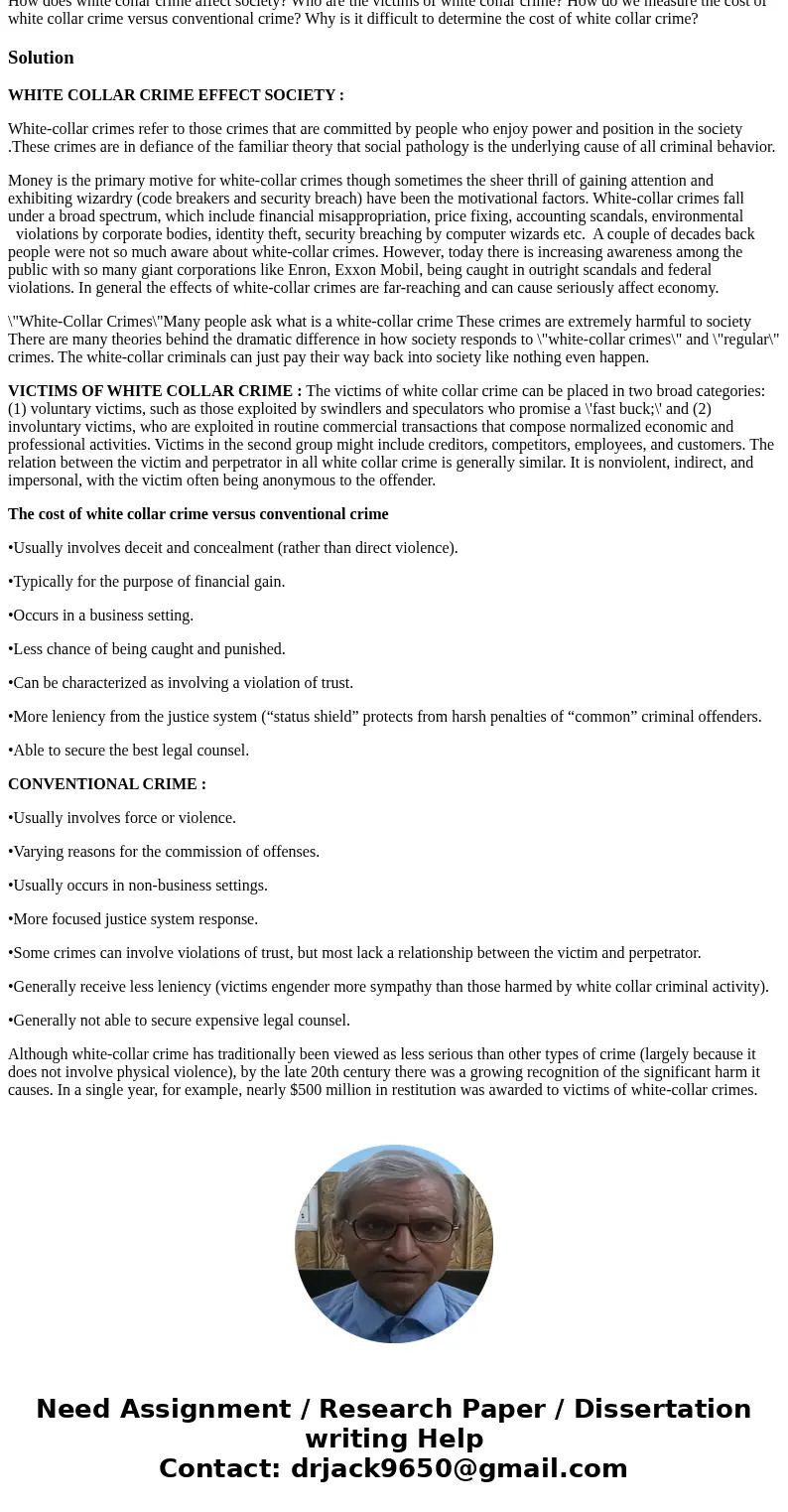How does white collar crime affect society Who are the victi
How does white collar crime affect society? Who are the victims of white collar crime? How do we measure the cost of white collar crime versus conventional crime? Why is it difficult to determine the cost of white collar crime?
Solution
WHITE COLLAR CRIME EFFECT SOCIETY :
White-collar crimes refer to those crimes that are committed by people who enjoy power and position in the society .These crimes are in defiance of the familiar theory that social pathology is the underlying cause of all criminal behavior.
Money is the primary motive for white-collar crimes though sometimes the sheer thrill of gaining attention and exhibiting wizardry (code breakers and security breach) have been the motivational factors. White-collar crimes fall under a broad spectrum, which include financial misappropriation, price fixing, accounting scandals, environmental violations by corporate bodies, identity theft, security breaching by computer wizards etc. A couple of decades back people were not so much aware about white-collar crimes. However, today there is increasing awareness among the public with so many giant corporations like Enron, Exxon Mobil, being caught in outright scandals and federal violations. In general the effects of white-collar crimes are far-reaching and can cause seriously affect economy.
\"White-Collar Crimes\"Many people ask what is a white-collar crime These crimes are extremely harmful to society There are many theories behind the dramatic difference in how society responds to \"white-collar crimes\" and \"regular\" crimes. The white-collar criminals can just pay their way back into society like nothing even happen.
VICTIMS OF WHITE COLLAR CRIME : The victims of white collar crime can be placed in two broad categories: (1) voluntary victims, such as those exploited by swindlers and speculators who promise a \'fast buck;\' and (2) involuntary victims, who are exploited in routine commercial transactions that compose normalized economic and professional activities. Victims in the second group might include creditors, competitors, employees, and customers. The relation between the victim and perpetrator in all white collar crime is generally similar. It is nonviolent, indirect, and impersonal, with the victim often being anonymous to the offender.
The cost of white collar crime versus conventional crime
•Usually involves deceit and concealment (rather than direct violence).
•Typically for the purpose of financial gain.
•Occurs in a business setting.
•Less chance of being caught and punished.
•Can be characterized as involving a violation of trust.
•More leniency from the justice system (“status shield” protects from harsh penalties of “common” criminal offenders.
•Able to secure the best legal counsel.
CONVENTIONAL CRIME :
•Usually involves force or violence.
•Varying reasons for the commission of offenses.
•Usually occurs in non-business settings.
•More focused justice system response.
•Some crimes can involve violations of trust, but most lack a relationship between the victim and perpetrator.
•Generally receive less leniency (victims engender more sympathy than those harmed by white collar criminal activity).
•Generally not able to secure expensive legal counsel.
Although white-collar crime has traditionally been viewed as less serious than other types of crime (largely because it does not involve physical violence), by the late 20th century there was a growing recognition of the significant harm it causes. In a single year, for example, nearly $500 million in restitution was awarded to victims of white-collar crimes.


 Homework Sourse
Homework Sourse